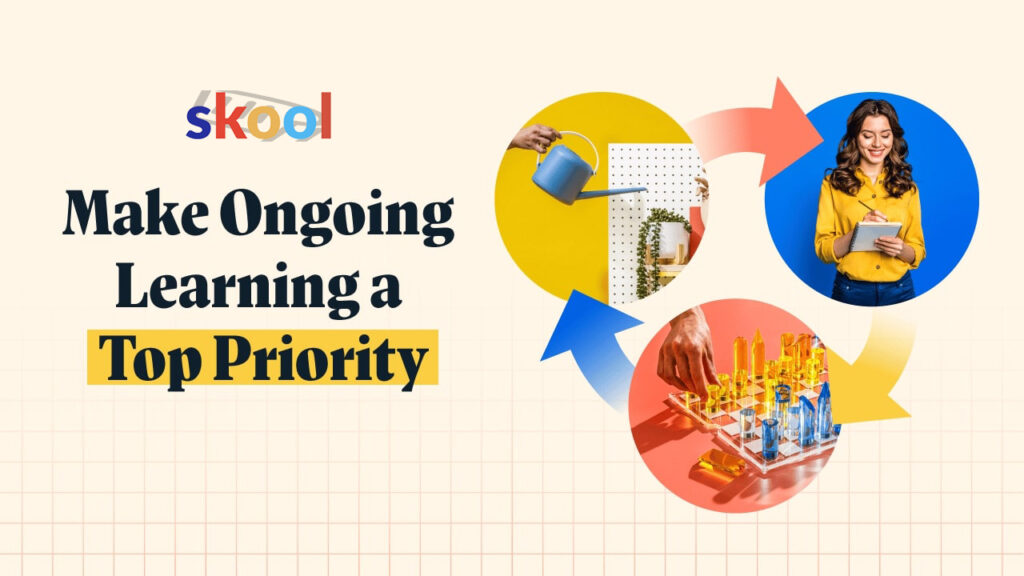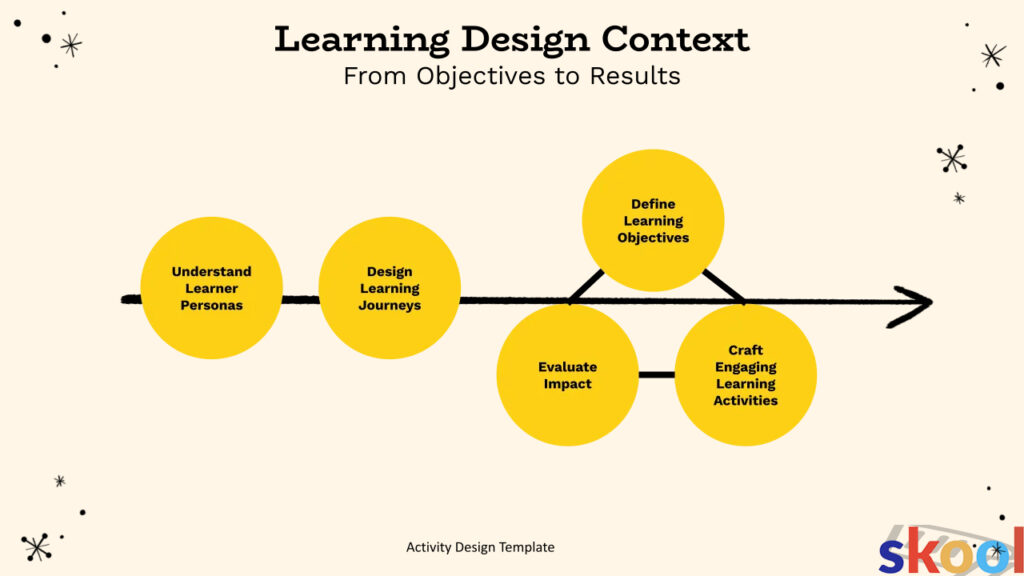The world is constantly evolving, and the skills and knowledge that were once valuable can quickly become outdated. In this dynamic environment, fostering a culture of lifelong learning within your community becomes crucial.
This approach encourages continuous learning and growth, ensuring your skool members stay adaptable, engaged, and empowered.

Why Build a Culture of Lifelong Learning?
The benefits of a learning-oriented skool community are numerous:
- Increased Innovation: When members actively learn and explore new ideas, it fosters creativity and innovation, leading to fresh perspectives and solutions for your community’s challenges.
- Enhanced Problem-Solving: A community that embraces learning is better equipped to tackle complex problems. Members can draw on a wider pool of knowledge and adapt their skills to overcome obstacles.
- Stronger Engagement: Learning ignites curiosity and keeps members interested. A community that offers learning opportunities fosters a sense of growth and purpose, leading to higher engagement and retention.
- Attracting Top Talent: Communities known for fostering lifelong learning are seen as desirable by individuals who prioritize growth and development. This can attract new members who bring valuable skills and perspectives.
How to Cultivate a Learning Mindset
Here are some key strategies to implement:
- Promote a Growth Mindset: Shift the focus from simply acquiring knowledge to developing a love of learning. Encourage members to see challenges as opportunities for growth and emphasize the importance of continuous improvement.
- Offer Diverse Learning Resources: Cater to different learning styles by providing a variety of resources. This could include online courses, workshops, guest lectures, book clubs, or even informal knowledge-sharing sessions among members.
- Celebrate Learning Achievements: Recognize and celebrate instances of learning and growth within your community. This could be through public shout-outs, awards, or highlighting success stories.
Now let’s deep dive in Part 2, where we’ll explore specific tactics for implementing these strategies and creating a thriving learning environment within your community!

In Part 1, we discussed the importance of fostering a culture of lifelong learning within your community. Now, let’s delve into specific tactics you can use to implement these strategies and create a dynamic learning environment.
Engaging Learning Activities:
- Workshops and Seminars: Organize workshops or seminars on relevant topics, led by internal experts or external consultants.
- Mentorship Programs: Establish a mentorship program where experienced members guide and support newer members, fostering knowledge transfer and creating a sense of community.
- Learning Circles: Facilitate small group discussions focused on specific topics or challenges. This allows for peer-to-peer learning and fosters a collaborative environment.
- Book Clubs or Reading Groups: Create book clubs or reading groups centered around relevant themes. Encourage discussions and knowledge sharing based on the chosen materials.
- Online Learning Platforms: Utilize online learning platforms to offer courses, tutorials, or webinars accessible to members at their convenience.
- Speaker Series: Invite guest speakers to deliver talks on their areas of expertise, providing fresh perspectives and insights to your community.
Encouraging Participation and Growth:
- Interactive Learning Experiences: Incorporate interactive elements into your learning activities, like polls, quizzes, or hands-on exercises. This keeps members engaged and helps them retain information better.
- Gamification: Introduce gamification elements into your learning programs. Points, badges, and leaderboards can add a fun layer of competition and motivate members to participate actively.
- Microlearning Opportunities: Provide bite-sized learning opportunities, like short video tutorials or articles, that cater to busy schedules and allow members to learn on the go.
- Community Knowledge Sharing: Facilitate knowledge sharing among members by creating a forum or platform where they can share insights, experiences, and best practices.
- Resource Sharing: Maintain a curated list of learning resources, such as online courses, articles, or podcasts, that members can access for further exploration.
- Track Progress and Feedback: Implement a system to track member progress and gather feedback to gauge the effectiveness of your learning initiatives.
Remember: Building a culture of lifelong learning is an ongoing process. By consistently providing valuable learning opportunities, celebrating achievements, and fostering a supportive community environment, you can empower your members to embrace continuous learning and growth, ensuring your community thrives in the ever-changing world.
